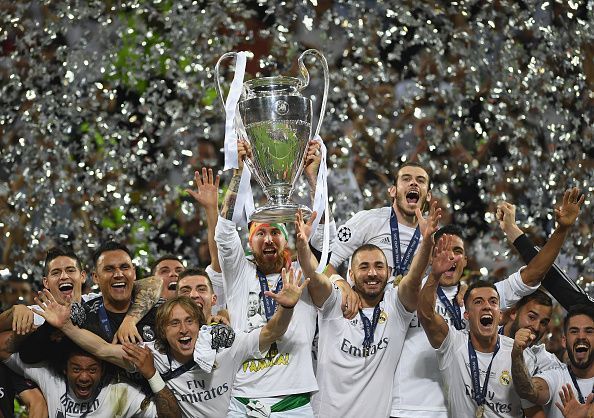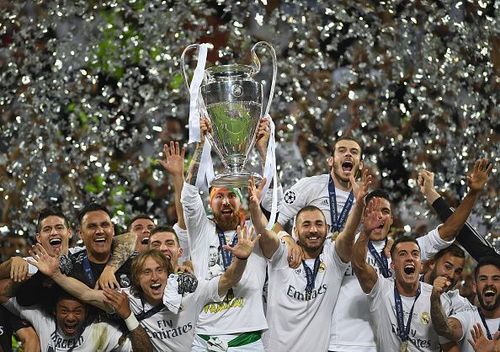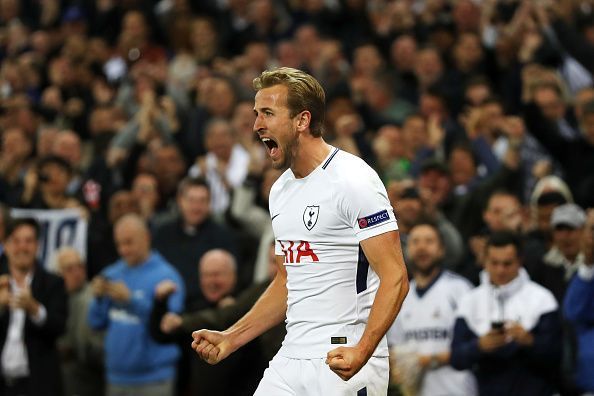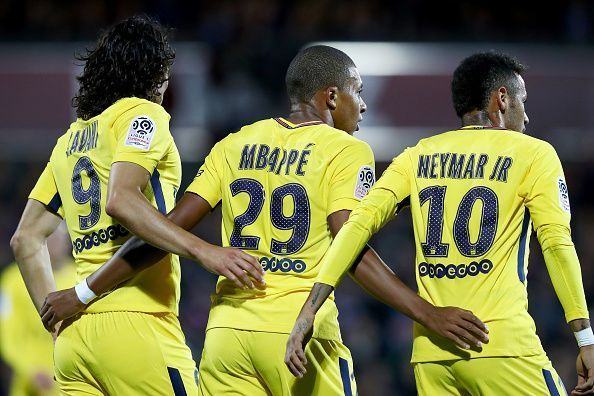
This year's UEFA Champions League is shaping up to be the most unpredictable in years

The UEFA Champions League is, without a doubt, one of the most coveted titles in the sport. Every year, the biggest clubs in Europe battle it out on the biggest continental stage to lift the trophy in May.
Fans all around the world excitedly wait for the knock-out rounds to come rolling around after the winter transfer window since the Champions League is the one tournament where they can watch their favourite teams from different leagues play each other.
A tournament like this should ideally be one of the most unpredictable ones because there are so many excellent clubs all over the continent dominating their respective domestic leagues. Teams are also constantly changing, with managers, players, coaching staff and board members going in and out of the club.
The cycle of predictability
And yet, a familiar cycle of predictability has set in, with Spanish and German clubs dominating Europe for the past decade or so. This domination is not just subjective - 11 of the last 16 finalists in the past four seasons have been Spanish or German. 6 of the last 11 editions have been won by either Barcelona or Real Madrid.
These are mind-boggling numbers when you consider how competitive the Champions League is supposed to be. And if Barca, Real and Bayern have been dominating, English clubs have been underwhelming.
There is a reason for all of this though, and it might sound cliched, but the taxing schedule of the Premier League does play a role. The pace and physicality of the English game is unmatched by any other European League.
The more even distribution of revenue in England means that smaller teams are now able to spend more and more money, with teams like Stoke, Swansea and Watford signing players like Shaqiri, Renato Sanches and Richarlison.
And they beat some big clubs to sign these players, which means that the very prospect of playing in the Premier League is becoming more and more attractive.
This is largely due to the high levels of competition that makes it one of the most watched leagues in the world, but it does come with its costs. With Premier League teams spending most of their energy and time on trying to compete for the league title, they're left making a very meek challenge for the UCL.
With the La Liga and Bundesliga becoming more and more monopolized with every passing year, it's exactly the opposite case for these teams, with most of their attention focused on the Champions League.
Everything indicated towards a similar trend this year, but surprisingly, English teams have so far proven that they are no pushovers in the group stages. History was made even before the tournament when five English teams qualified after Manchester United went through after winning the Europa League.
All the English teams are on top of their respective groups after three matchdays. Perhaps the most impressive so far have been Tottenham, who sit on top of the "group of death", ahead of the likes of Dortmund and defending champions Real.
Spurs have already beaten Dortmund 3-1 at Wembley and admirably held on at the Bernabeu to secure a 1-1 draw against Real. The other English clubs are in reasonably easier groups, but some standout results are City's 2-1 win over Napoli, and Chelsea's victory by the same scoreline against Atletico.

Does this mean that finally, English teams have what it takes to beat the best European powerhouses and mount a challenge for the prestigious title?
The resurgence of the English teams
While the renaissance happening right now in England might appear to be a sudden shift in power among European giants, there is, in fact, a reason.
Last year, Antonio Conte, Pep Guardiola and Jose Mourinho took charge of the three biggest clubs in England. The Italian maverick was an immediate success, guiding Chelsea to the league title after a disastrous season in 2014/15 when they finished tenth.
Guardiola and Mourinho, however, were disappointing in their first campaign. City finished fourth and were disappointingly knocked out in the round of 16 by Monaco, and while United did win silverware, it was at the cost of a very poor domestic season.
This year, however, all the indications point towards the three most tactically adept minds in football management finally settling in at their respective clubs and infusing their philosophies into their squads.
Conte's tactics have remained largely unchanged from last season, although he has been favouring a modified 3-5-2 system so far this season, ditching an extra forward up front to accommodate another midfielder.
Mourinho has stuck to a largely unchanged 4-2-3-1, with new signings Lukaku and Matic boosting the squad strength, and adding an extra dimension in midfield and attack.
Guardiola, however, had been the most successful, with his well-oiled attacking machine dismantling defences with ease. The midfield duo of David Silva and Kevin De Bruyne have pivotal in their success so far.
Liverpool might have been struggling domestically, but after starting with meek draws against Sevilla and Spartak Moscow, they slaughtered Maribor 7-0.
It also helps that some other major European teams took a hit in the summer transfer window. Barcelona, obviously, lost the services of Neymar, and Philippe Lahm and Xabi Alonso retired, leaving Bayern with some huge shoes to fill.
Messi has so far single-handedly carried Barcelona to the top of La Liga and their Champions League group, while Bayern are in a sortof a turmoil after Carlo Ancelotti was sacked following an underwhelming 3-0 loss to PSG.
Real Madrid were expected to carry forward their incredible form from the past two seasons when they won back-to-back UCL titles, but have been struggling for form after Ronaldo picked up a ban in the Spanish Super Cup. They currently sit third in La Liga and second in Group H.
While City, United and Chelsea may be the ones making waves in Europe, Tottenham have silently been working away in the shadows, and the foundations laid by Pochettino in the last couple of seasons have finally come to fruition.
Harry Kane is one of the best strikers in the world right now, and in Dele Alli and Christian Eriksen, they have two of the most underrated midfield playmakers. Former Ajax stars Vertonghen, Alderweireld and Davinson Sanchez form the spine of one the best defences in Europe.
The giants of Europe
And then, of course, there's PSG. The French giants were heavily criticised by some fans for having the broken the bank to sign Neymar for €222 million and Kylian Mbappe for €166 million.
But the two of them have shaken up the French giants' attack, and have been in scintillating form so far, combining beautifully with Edinson Cavani to form what is currently the best front three in Europe.

The three of them, in spite of their occasional differences, have sent PSG six points clear at the top of Ligue 1, and sit on top of Champions League group B, ahead of Bayern.
The emergence of PSG and English heavyweights on to the European scene is a welcome sight for sore eyes. For the first time in several years, there is no single favourite for the Champions League, and that makes this year's edition a must watch for the neutral fan.
Whoever comes out on top when the final comes around in May, one thing has been made very clear: English and French clubs are no longer just punching bags for the European elite.